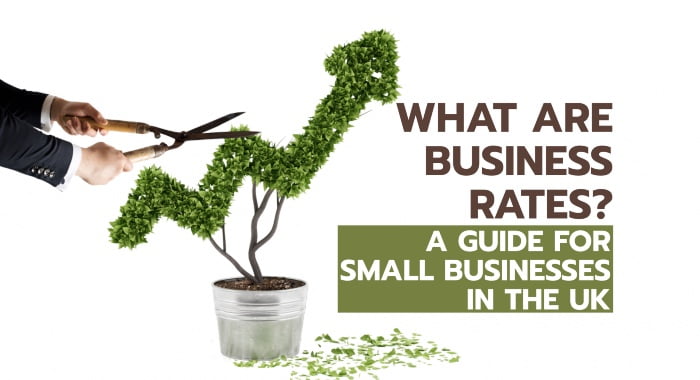Business rates are a key part of the cost of running a business in the UK. Whether you own a small shop, rent office space, or run a warehouse, you’ll likely need to pay business rates to your local council.
This guide explains what business rates are, how they’re calculated, who pays them, what reliefs are available, and how they affect small businesses in 2024.
🧾 What Are Business Rates?
Business rates are a local tax on most non-residential properties in the UK. They are charged on:
- Shops
- Offices
- Factories
- Warehouses
- Pubs and restaurants
- Holiday homes (if commercially let)
- Other commercial premises
Collected by local councils, business rates help fund local services such as rubbish collection, road maintenance, and community projects — similar to how council tax works for residential homes.
🧮 How Are Business Rates Calculated?
Business rates are based on the rateable value of a property, which is set by the Valuation Office Agency (VOA).
🏢 Step 1: Find Your Rateable Value
The rateable value is an estimate of your property’s open market rental value as of a certain date — the latest being 1 April 2021 for the current rating list.
You can check your property’s rateable value on the VOA website.
💷 Step 2: Apply the Business Rates Multiplier
There are two multipliers set each year by the UK government:
| Financial Year 2024/25 | Standard Multiplier | Small Business Multiplier |
| England | 54.6p | 49.9p |
🧮 Calculation Formula:
java
CopyEdit
Business Rates = Rateable Value × Multiplier
Example:
If your property has a rateable value of £15,000:
- With small business multiplier: £15,000 × 0.499 = £7,485 per year
🧵 Who Has to Pay Business Rates?
You must pay business rates if:
- You own or rent a non-domestic property
- The space is used for commercial purposes
- You use part of your home for business (depending on the extent of use)
You do not pay business rates on:
- Agricultural land and buildings
- Places of worship
- Some non-profit and charitable properties (may be exempt or eligible for relief)
🧾 Business Rates for Home-Based Businesses
If you work from home, you usually don’t have to pay business rate unless:
- You employ staff who work from your home
- You’ve converted part of your home into a dedicated workspace
- You sell goods or services to customers from your property
- You’ve made structural changes to accommodate business use
In some cases, you may have to pay What Are Business Rates?
🎯 Business Rate Reliefs in 2024
To support small businesses, several reliefs and discounts are available:
Small Business Rate Relief (SBRR)
- Available if your property’s rateable value is under £15,000
- 100% relief if your rateable value is £12,000 or less
- Tapered relief from £12,001 to £15,000
- Your business must occupy one property, or additional ones with rateable values under £2,900
Rural Rate Relief
- For businesses in rural areas with a population under 3,000
- Post offices, general stores, and food shops may qualify for 50–100% relief
Charitable Rate Relief
- Registered charities and non-profits may get up to 80% relief
- In some cases, councils can offer an additional 20% discretionary relief
Enterprise Zones and Freeports
- Businesses in these special zones may qualify for up to 100% relief for 5 years
Retail, Hospitality and Leisure Relief (2024)
- Eligible properties get 75% off their business rate bill, up to £110,000 per business
- Applies to shops, cafes, bars, restaurants, hotels, cinemas, and more
🗓️ Business Rates in the 2024/25 Tax Year
In the UK 2024/25 financial year:
- No revaluation is scheduled (next revaluation is expected in 2026)
- Business rate bills are based on 2023 revaluation (values from April 2021)
- Retail, Hospitality and Leisure relief continues at 75%
🔁 How Often Are Business Rate Updated?
- Rateable values are typically reassessed every 3 years
- The most recent revaluation came into effect on 1 April 2023
- Businesses can challenge or appeal their rateable value through the VOA
🧮 How to Pay Business Rate
- Pay annually or in monthly instalments
- Set up direct debit payments
- Apply for hardship relief or payment deferrals if you’re struggling
⚠️ Common Misconceptions
| Misconception | Reality |
| “Only large companies pay business rates” | Small businesses with property also pay, unless fully exempt |
| “I don’t need to apply for relief” | Many reliefs aren’t automatic – you must apply |
| “Home-based businesses never pay” | You may pay if part of your home is a dedicated workspace |
📌 Tips for Managing Business Rate
- Check your rateable value annually
- Apply for reliefs early to avoid overpayments
- Consider downsizing if your space exceeds your needs
- Use your council’s business rate calculator for estimates
- If moving, check the new location’s impact
🧠 Conclusion
Business rates are a significant cost of running a commercial property in the UK, but with careful planning and use of available reliefs, you can minimise your bill. Whether you’re a sole trader, a limited company, or a growing SME, understanding how work is crucial to financial planning in 2024 and beyond.
For the most accurate and up-to-date guidance, always consult with your local council or a professional accountant.



